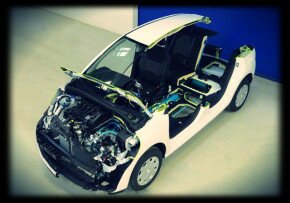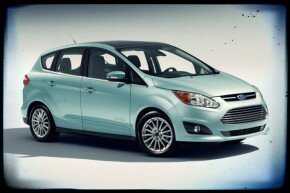2016 Peugeot Hybrid Air details
 |
The new Peugeot Hybrid Air concept had its debut at the 2013 Geneva Motor Show last month and the automaker announced that this hybrid car will go into production in 2016. Here are some details regarding this vehicle.
The 2016 Peugeot Hybrid Air will have a significant effect on the car industry and boost Peugeot’s success at a time when the company is in need of a bit of luck. Peugeot will use new hybrid technology that will allow this vehicle to to return 81mpg, and it is expected that it will be far cheaper than competing hybrid vehicles, such as Toyota Prius.
The car’s design is similar to existing compact hatchbacks that Peugeot is famous for, but running down the centre of the car is a blue, four-foot long accumulator, or ‘scubba tank’ as Peugeot engineers refer to it.
The tank holds around 20 litres of nitrogen and some hydraulic fluids. In the same way as other hybrid cars, the Hybrid Air vehicles recover energy every time the driver uses the brakes or slows the car down; however, this energy is used to compress the gas in the tank. The compression is performed through a reversible hydraulic pump, and means that the energy can be released the next time the driver pumps the accelerator.

The system does not produce massive amounts of energy, and the car would rarely travel for more than a mile before the petrol engine would have to kick back in. However, in stop-start urban traffic, the system would save a lot of energy and increase mpg figures considerably.
Other advantages over existing hybrids are that expensive lithium-ion batteries and electric motors are not used, which will bring the purchasing price of the Hybrid Air models down to around £17,000 – far cheaper than petrol electric hybrids such as the famous Prius. Also, the components are simple and inexpensive to service.
Similar technology has been used for vehicle applications in the past, for example UPS ran a fleet of vans that used hydraulic fluid to convert braking energy into forward motion in 2009. Peugeot engineers say that the technology used is essentially know technology, but the way that the Hybrid Air system works is innovative due to how the components have been fitted together to gain maximum efficiency.
The design process is not completed, and more work needs to be done on the hydraulics and brakes. Peugeot believe that with more work, the Hybrid Air models would be able to return 117mpg by 2020, which could really shake up the hybrid car market.














